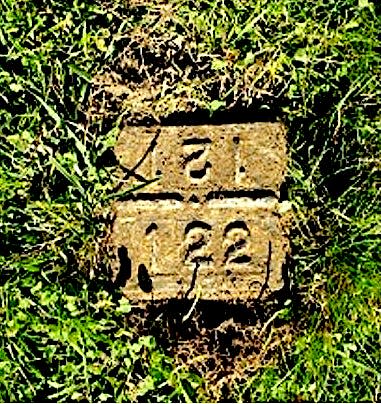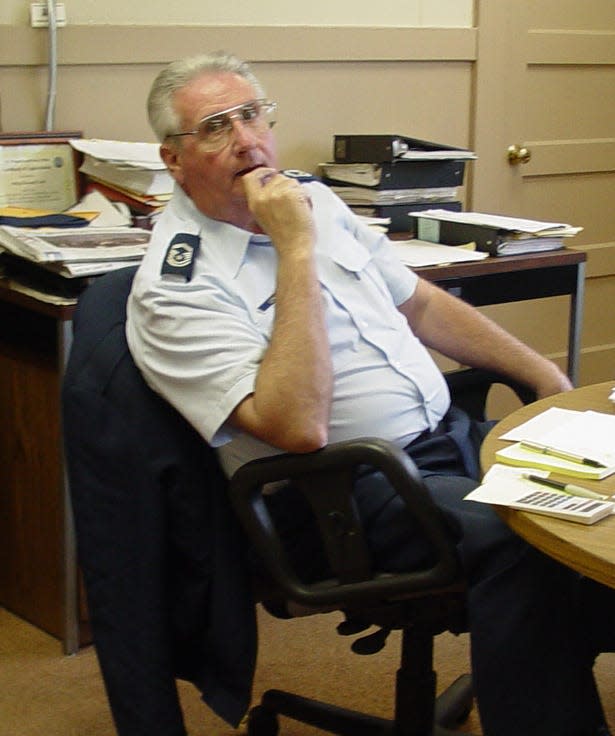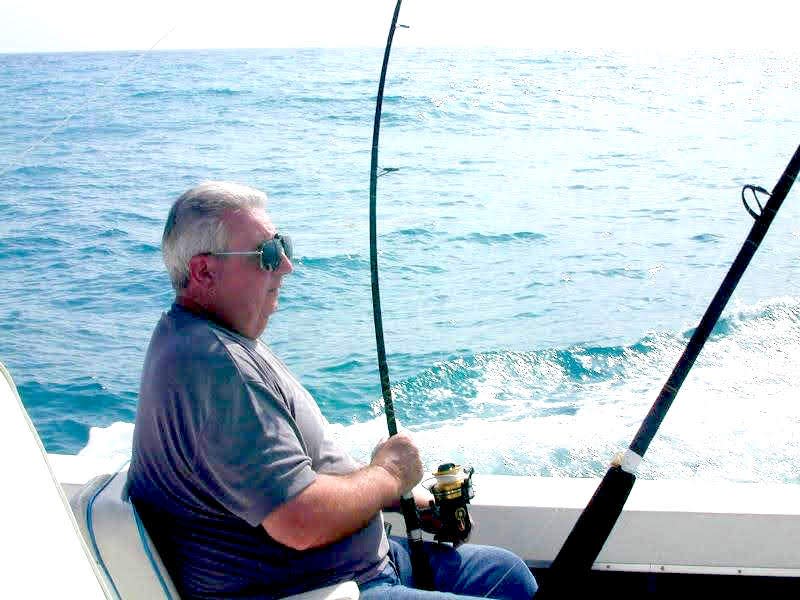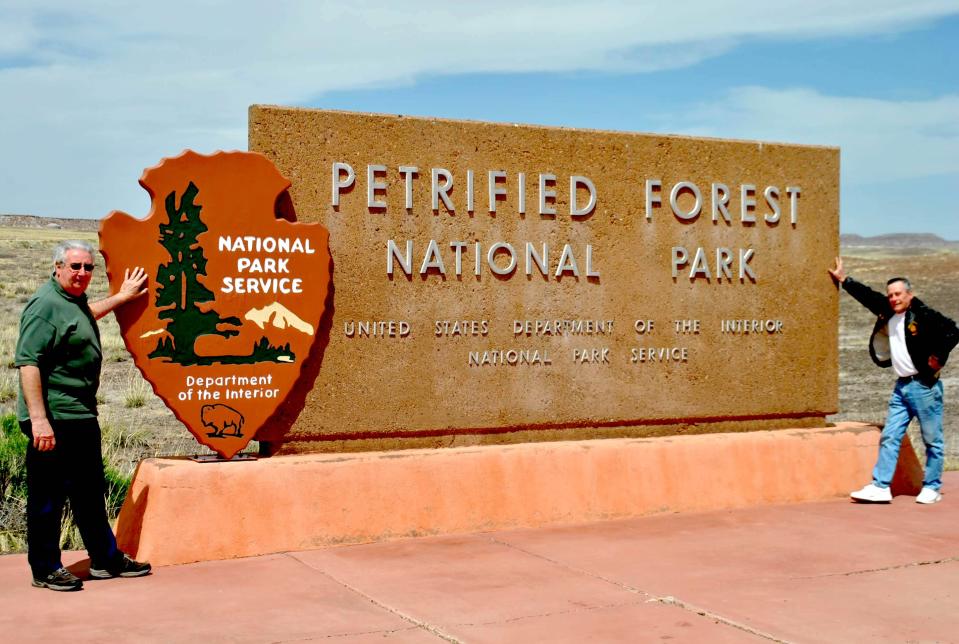A veteran's final odyssey: Why RI buried a career military man in a nameless grave
The death of retired Air Force Senior Master Sgt. Ken Lewis on Dec. 11, 2020, inspired this column, as well as the column next Monday. It is certainly a sad story, because it involves not just Ken’s passing, but also his initial interment as a public-assistance burial in a potter’s field, with a grave marked only by a number.
But there is a heartwarming ending. Ten days ago, the remains of Ken Lewis were exhumed from his pauper’s grave and buried for a second time. He now rests where he belongs – in the Rhode Island Veterans Memorial Cemetery in Exeter, with a proper marker.Most of all, however, this is a cautionary tale with an important message for every veteran:
Decide what your funeral arrangements should be. Put them in your will, or at the very least write them down and give them to a trusted family member or friend.
None of us should end up like Ken Lewis.

How did things go so wrong?
After Ken's death in December 2020, no relatives could be located who were willing to handle funeral arrangements. His military buddies, his landlord and other friends all say they notified the authorities that Ken was a veteran, and that he had a brother, Steven, in Nevada.
Following policy, the medical examiner's office reached out to his brother, who declined to get involved. The office then advertised in local newspapers seeking any other relatives who might claim Ken’s body. No one came forward.
But a non-blood relative did. Ken’s friend Lorie Daley, the beneficiary of his life insurance policy, said, “I told the medical examiner we would gladly take his remains and handle the arrangements the way Ken wanted, which was to be cremated.”
An unclaimed body no longer: Alan Clarke wouldn't allow Gwen Bowers to be forgotten
She also emphasized that Ken was a veteran, to no avail. “The coroner, Jackie, was very nice to me, but she said her hands were tied. I was not a blood relative, so I had no standing.”
Lorie tracked down Ken’s brother, Steve, in Nevada. “He told me I could do whatever I wanted with Ken, but he wasn’t going to get involved.”
At the same time, the medical examiner's office apparently never effectively followed up on the report that Ken was a veteran, eligible for burial at the veterans cemetery in Exeter.
In an email, Department of Health spokesperson Joseph Wendelken acknowledged that “… a non-family member relayed to us that they believed he was a veteran. However, based on the limited information available at the time, his veteran status could not be confirmed.”
It appears that only a cursory attempt was made to confirm Ken’s veteran status – but, to be fair, perhaps none was required under current policy. (More on that coming next Monday.)
Retired Army Maj. Gen. Jim Nuttall said such responses sound protective: “We did nothing wrong. We did what we were supposed to do.”
“I don’t think that’s enough in a case like this,” Nuttall said.
With no blood relatives stepping up, the medical examiner handed the case off to the state Department of Human Services, which organized a General Public Assistance burial in an unmarked grave in West Greenwich.
Friends pursuing the situation were eventually able to track down the funeral director hired by the state. Unfortunately, this happened a few days after Ken had been buried.
Ken’s story
Retired Chief Master Sgt. Wally Musto, of Warwick, was one of Ken’s closest friends. He said Ken arrived from Nevada in 1974. An accounting supervisor was unable to continue working, so his job was posted nationally. Ken applied for it.
Since he had done the same job in the Nevada National Guard, he was a natural for the position and was hired. Master Sgt. John Mottola was then a payroll supervisor, and he and Ken became best friends.
Mottola recalls Ken’s first day on the job: “We were at T.F. Green then, in a big rectangular building that overlooked the parking lot. This Corvette pulls in, and the license plate read TURKEY.”
They soon learned that Ken was an avid bowler, and that three strikes in a row is called a “turkey.”

“We were the biggest nutcrackers on the base,” Musto said. “And we were ready to give the new guy a hard time. But we couldn’t do it. Ken was just a plain and simple great guy. No pretenses. Never concerned about impressing; he just wanted to be your friend.
“He was extremely loyal, had a great sense of humor and truly appreciated any kindness,” Musto continued. “He never had a bad word to say about anyone.”
Ken makes his mark
He progressed to become the superintendent of contracting for the Air National Guard program.
Ken had served during the Vietnam era, although his friends don’t think he deployed overseas. After almost 40 years’ service, he retired in 2002 as a senior master sergeant, with many awards and citations.
Subsequently, Ken became director of the state’s Procurement Technical Assistance Center, helping small businesses navigate the complexities of contracting with federal and local agencies.
More: They died alone without family or friends. What happens to their earthly remains?
He finished his career as a contractor for the U.S. Property & Fiscal Office and fully retired around 2017.
Another of Ken’s good friends from the U.S. Property & Fiscal Office was Marcel Cartier, now a retired command chief warrant officer.
Cartier provided more context about Ken’s relocation.
“Living in Reno, he feared he would become addicted to the drinking and gambling lifestyle,” he said. “Sometimes other state Guard units struggled with accounting issues and asked for help. Because of his expertise, Ken was often asked to fill in. He took advantage of every opportunity to get away from Reno.”
When the full-time position opened in Rhode Island, Ken leaped at it.
“He told me he was afraid that if he did not get out of Reno, the lifestyle would have killed him,” Cartier added.
Off-duty interests
Ken may have left Reno, but he never lost his love for gambling. That usually meant playing poker with friends.
Golf was another interest. A few years ago, his group set up a league with an unprintable name. Another member, Sal Gentile of Coventry, said the league’s annual tournament has been called the Kenny Lewis Open since his death.
“Every Columbus Day we took a long weekend and went to the Cape,” John Mottola said. “We’d play two rounds of golf each day, and then come back and play poker at night. Those were great times with great friends,” he said wistfully.
Ken and Marcel Cartier also shared a passion for fishing. Periodically they would head out to one of the country’s great fishing spots.
“From Maine to Key West and even Arizona and Nevada,” said Marcel. “We did deep-sea fishing, freshwater fishing, even ice fishing. He really wanted to go to Alaska. But we never made it.”

Relationship-wise, things did not work out so well. After a failed marriage, Ken moved into a duplex in an old home in Oakland Beach about 2017.
Ken’s good friend, Lorie Daley
For two decades, Ken’s hangout was the Bottom Line Bar & Grill, a cozy establishment on Palmer Avenue in Warwick, about 3 miles away. There, he made more friends, especially Lorie Daley.
Lorie, a Navy brat, was born at Quonset. “He was a regular customer and I was a bartender," she said of how she got to know Ken. "My husband, Sean Gallagher, was part-owner of the bar, and we started doing stuff together.”
They played cards every Thursday – a lot of Hi-Lo Jack, and there was usually a poker session on Sunday. They went to Foxwoods and Twin River.
“Ken became another member of our family,” Lorie said. “He even joined us when I took my 8-year-old son to Disney World. He came to my grandkids’ birthday parties and to my older son‘s graduation.”

Ken treasured Lorie's friendship and kindness and made her the beneficiary of his insurance policy. He gave her a copy.
“Clearly, she meant something to him,” said Mottola. “She treated him well, and he saw she probably needed the money, so he took care of her. That’s the kind of guy Ken was.”
Dec. 11, 2020
Ken died on a Friday. “Thursday, four of us were together all day, playing cards and having a great time,” Lorie said. “We talked every day. Friday I couldn’t reach him. I left several voicemails, but he never called back. I was worried, so Sean and I went to his house.”
Ken’s car was still in the driveway, but he did not answer the door. “We looked in the windows. I could see Ken lying on the floor, so I called 911,” she said. The police broke in and found him dead.
Landlords Jim Foley and wife Teri tracked down Ken's brother, Steve. Teri was distressed when Steve seemed unfazed by Ken’s death and wanted nothing to do with the funeral arrangements. (Perhaps there was some rift between the two, but, if so, Ken never told his friends.)
In January 2021, Ken was buried in an unmarked grave in St. Joseph Cemetery in West Greenwich. There was no name, only a small, flat marker with an identifying number.
“Sadly, the only people graveside were probably a couple of guys with shovels,” said Chief Master Sgt. Kevin McDonnell.
Father Robert Marciano, a former Air National Guard chaplain, is pastor of St. Kevin Church in Warwick. “I first heard about Ken from Chief Musto, who asked if there was anything I could do.”
Father Marciano arranged for a funeral service at his church. The National Guard jungle telegraph was activated, and one day in February 2021, active military, veterans and friends turned out to pay tribute.
More: For 46 days, RI family didn't know their father had died, was buried in unmarked grave
“That’s the good thing about the Guard,” Marciano said. “You serve with the same people for 20 to 30 years. Lifelong bonds develop, and that was certainly on display that day.”
Musto said, “Father Marciano was extremely generous. Anyone who wanted to speak did so. They provided beautiful music and arranged military honors.”
Absent other family, “the folded flag was presented to Lorie Daley, because she was the beneficiary of his insurance policy,” McDonnell told me.
This ceremony steeled the resolve of Ken’s friends to get him a proper burial and a proper marker at Exeter. One attendee was Lt. Col. Gerry Larence, another U.S. Property & Fiscal Office veteran who had worked with Ken for some 15 years.
He said, “As a logistics officer, I thought I had the knowledge and connections to accomplish the task.” Little did he know it would take him almost three years to outlast COVID and, more significantly, navigate a maze of state bureaucracy to move Ken to his final resting place.
Next Monday, I will detail the obstacles these veterans overcame to rebury Ken. I will also report on the system that may have failed Ken, and what we can do to ensure this sad story is not repeated.
This article originally appeared on The Providence Journal: The cautionary tale of Air Force veteran Ken Lewis' unmarked burial

